The Langar: How the Sikh Community Kept Glasgow Fed Through the Pandemic
Originally published in our third print issue, Robbie Armstrong explores the importance of food in Sikh culture and how this community helped to keep Glaswegians fed over the last year.
Photograph: Alexander Hoyles
By Robbie Armstrong
“If I’d thought over a year ago that the Sikh food bank would have been housed and operated fully from a church I would have said absolutely not, that makes no sense whatsoever.”
Charandeep Singh, a volunteer at the Sikh Food Bank is reflecting on the pandemic and how it has caused so many seismic shifts, reshaping our lives and relationships in ways we never imagined. For many Sikhs across Scotland, it has led to finding renewed purpose and vigour in centuries’ old traditions such as seva (selfless service), equality, charity and the oneness of humanity.
Many Sikhs practise seva in their community. Often, they do so by helping out with cleaning and washing dishes, or cooking and serving food in the langar – the community kitchen of a Sikh temple, or gurdwara.
The langar is a place without class, race, ethnicity, religion, economic status or gender distinctions (although men and women generally sit separately). People eat for free, sit in rows on the floor, and all food is vegetarian so everyone can share the same meal.
Scotland’s first purpose-built gurdwara on Albert Drive provides a centre for cultural, educational and religious exchange for the wider community. Everyone is welcome – all they ask is that you cover your head and take off your shoes before entering.
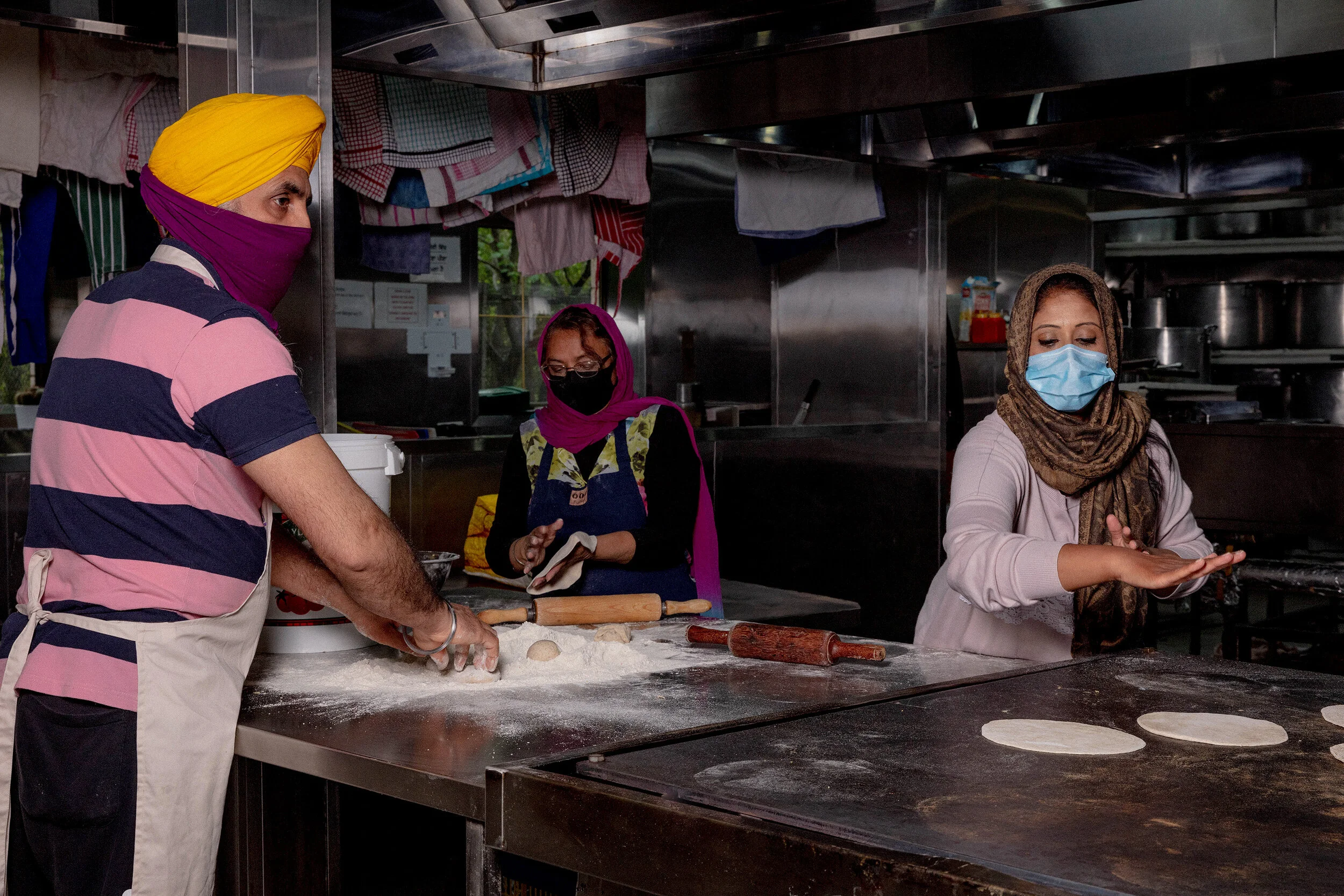
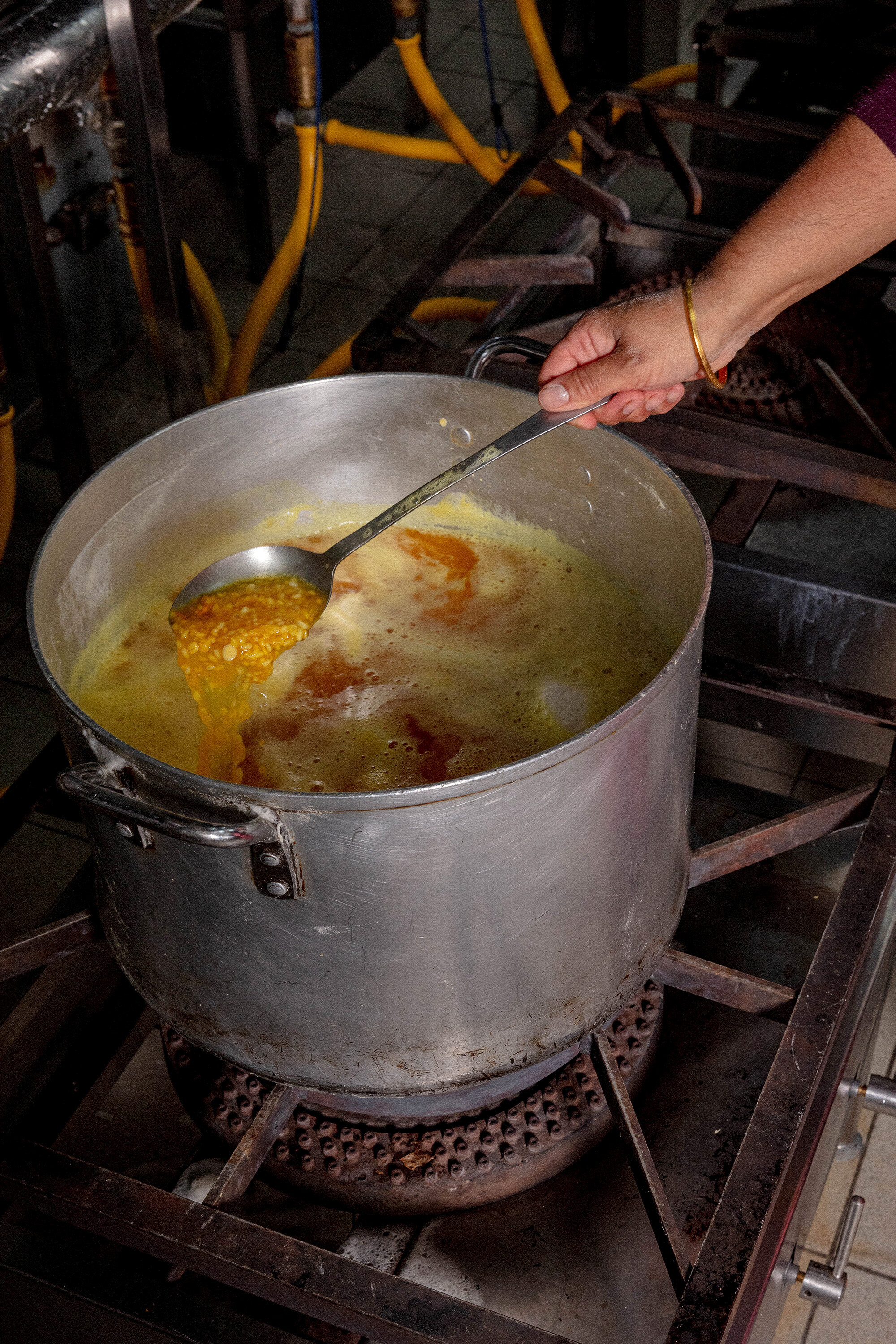
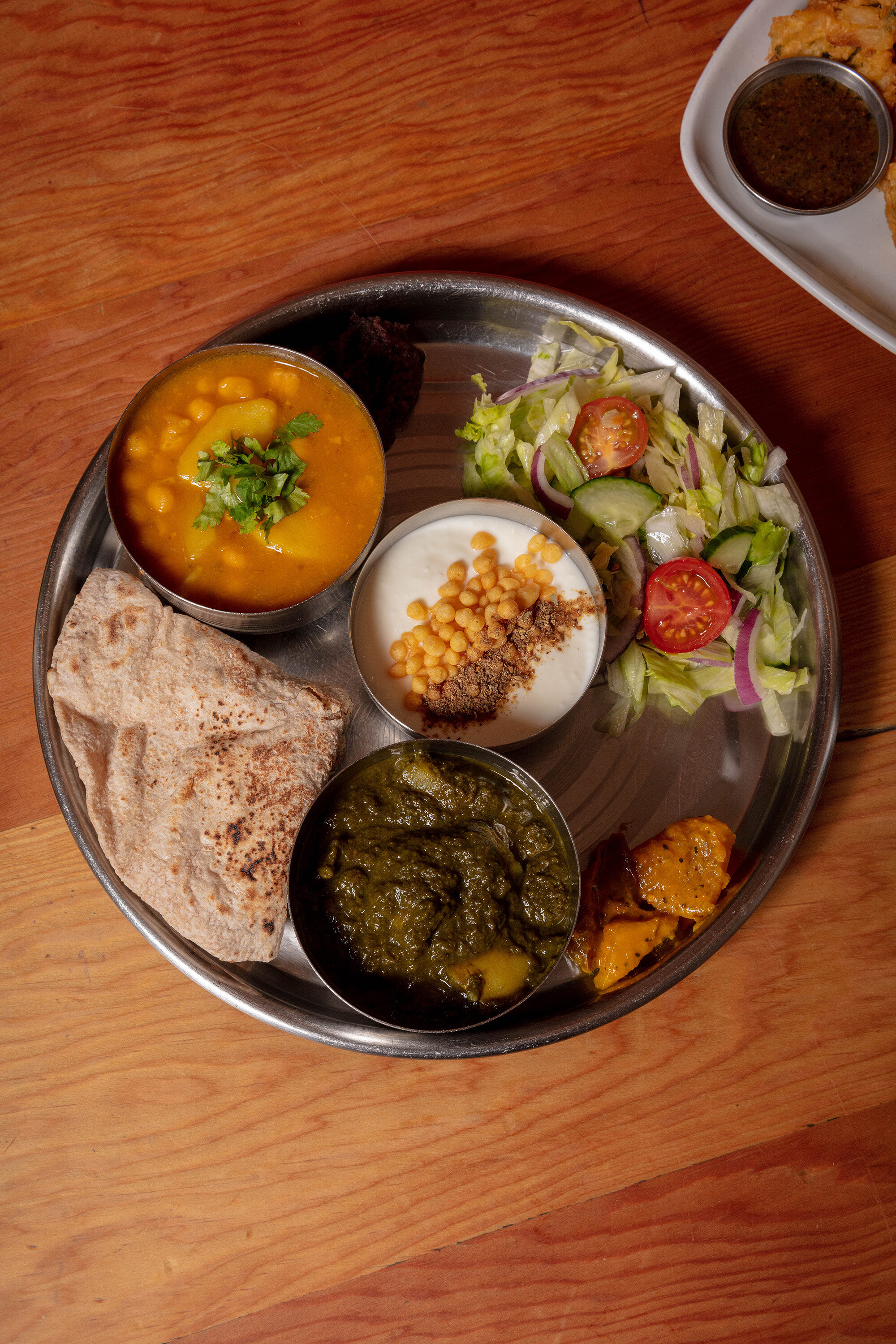
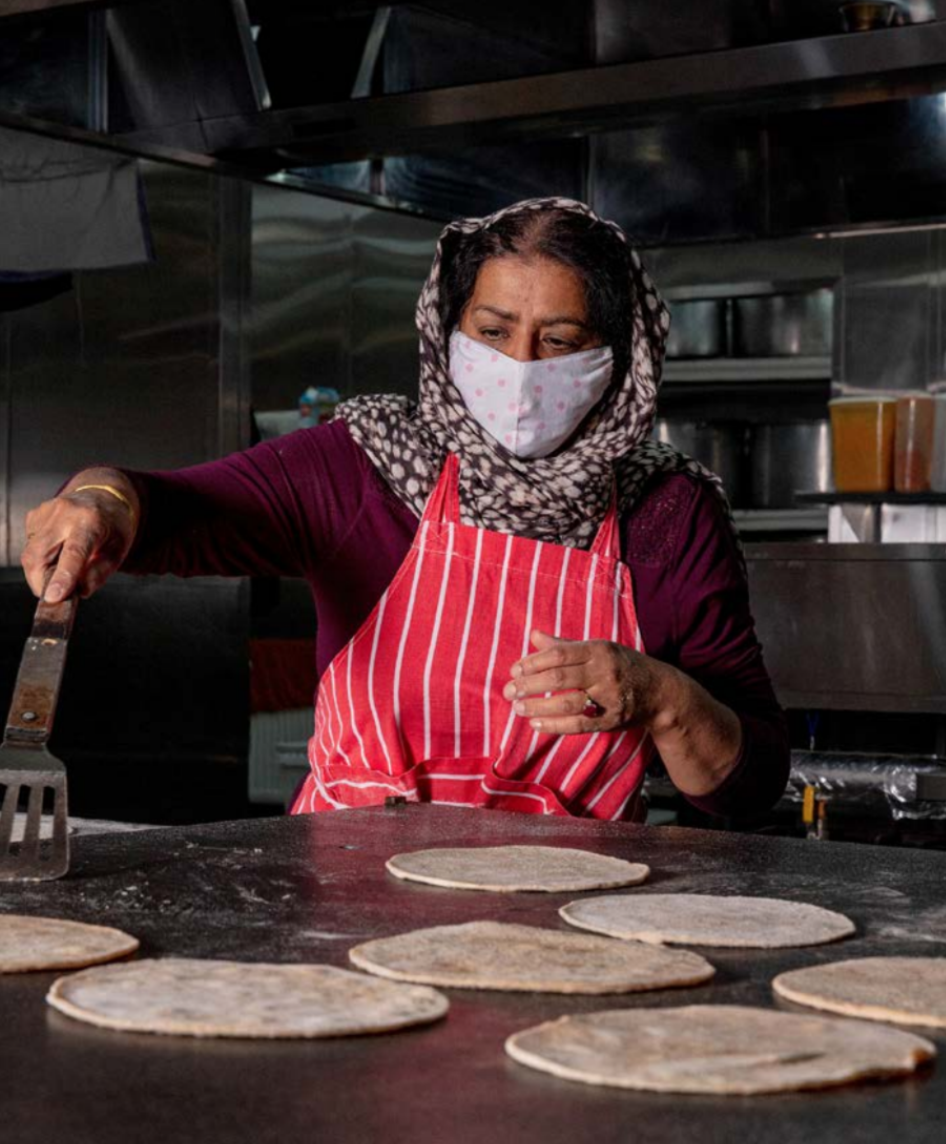
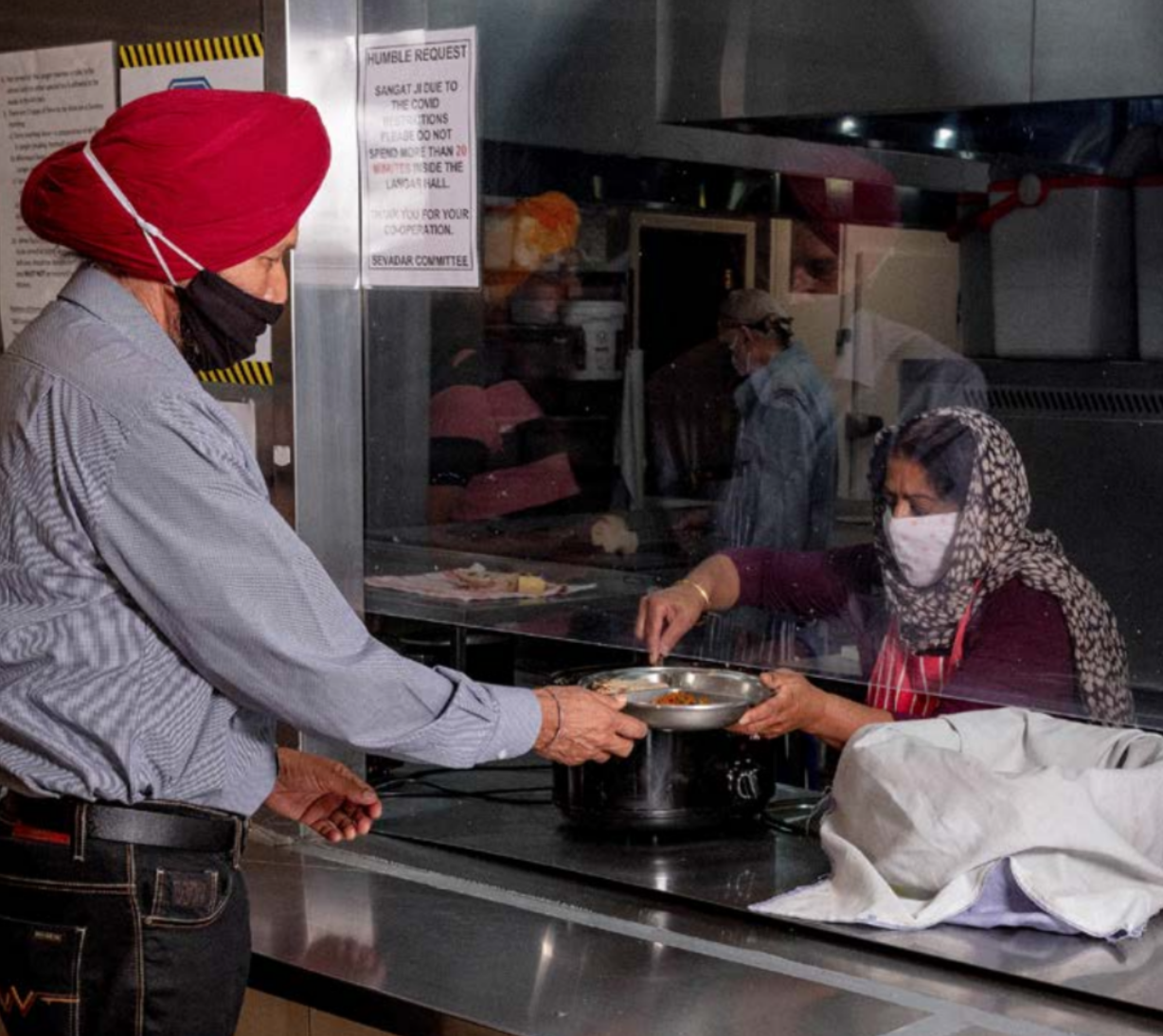
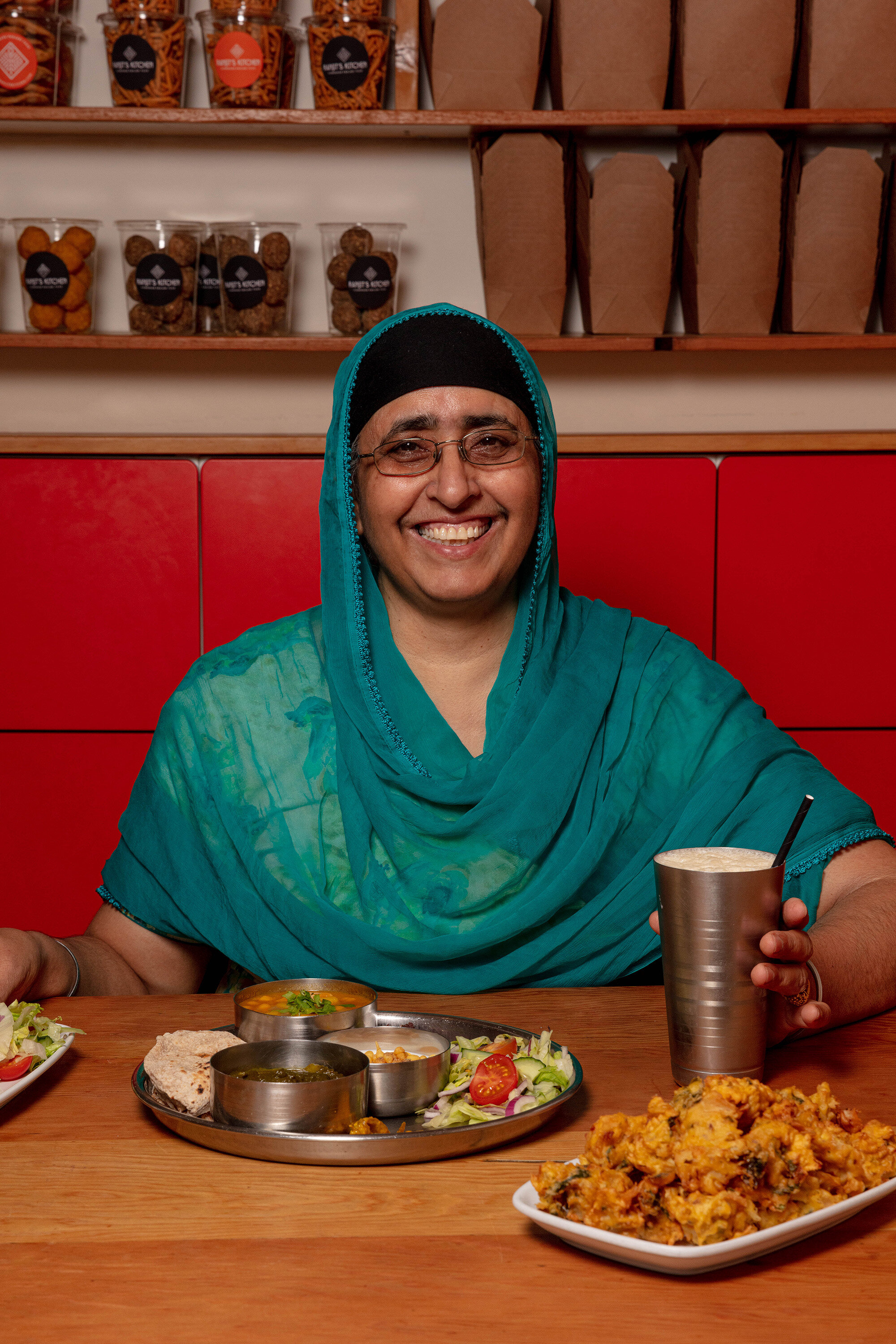
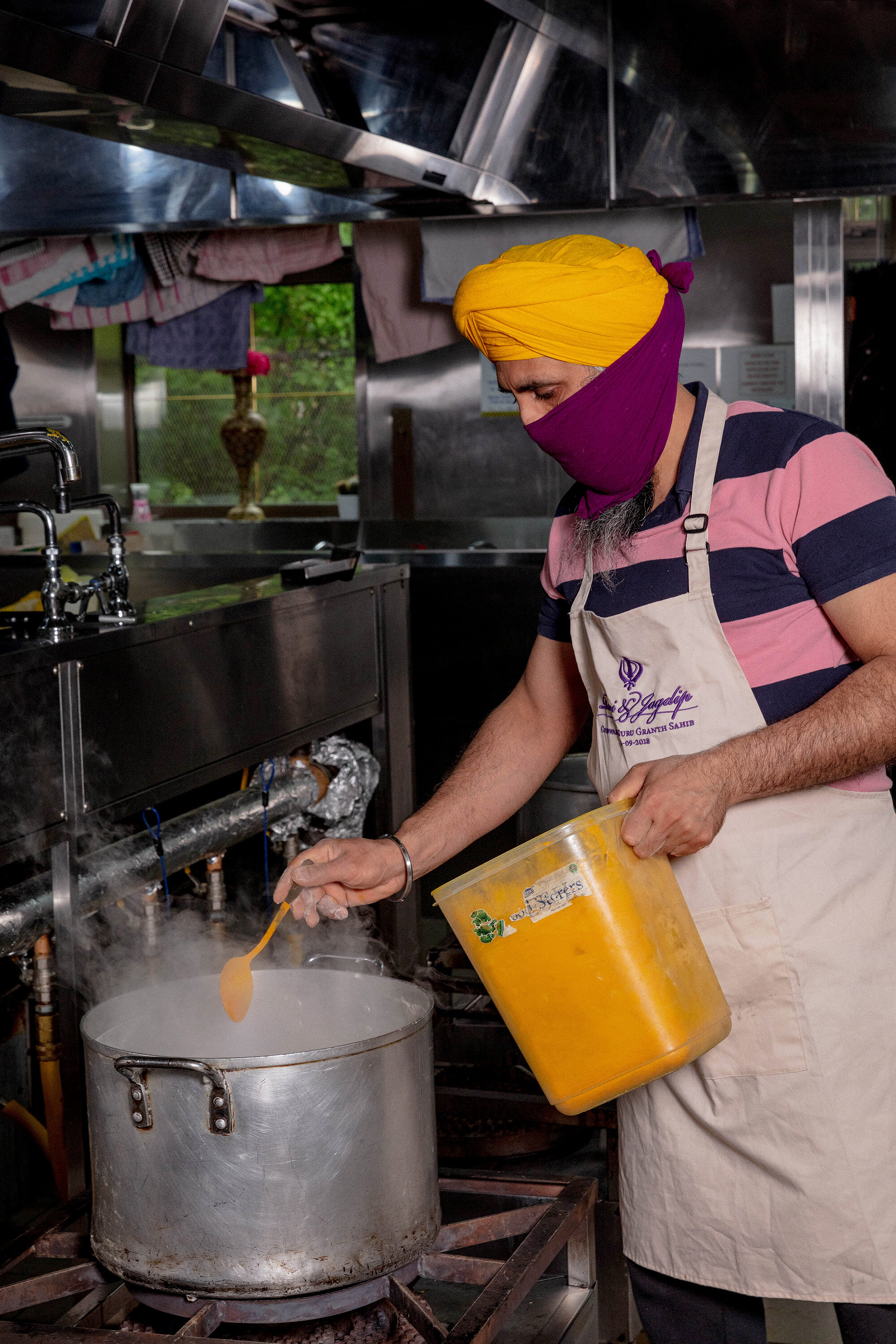
Shindo Kaur, an administrative member at the gurdwara explains: “Whether you’re homeless or whether you’re a rich person, everyone is treated the same, it doesn’t matter. We help Sikhs, Muslims, Scottish, English people, West Indians, people from Afghanistan. We get a phone call and we just deliver – we don’t discriminate,”
Earlier in the pandemic, they ran a food bank and volunteers prepared 1500 meals a week, helping to feed rough sleepers, the elderly, unemployed and those on furlough. The langar continues to deliver fresh meals to the city centre every Tuesday.
“It’s important to help everybody you can, every little we all do helps – and the money and food donations were flowing in. Everybody that was helping was full of energy” Shindo adds. “You felt it was your time to help people.”
But with many gurdwaras closed until recently, those wanting to help have found themselves reinterpreting age-old ideals and finding new ways to help those most in need.
Charandeep Singh feels that the pandemic has forced him to dip deep into the concept of langar. Many places of worship were closed, but he realised that: “Langar is primarily about the distribution of shared meals, it doesn’t matter where it was happening.”
So by delivering seven-day food parcels of fresh and nutritious meals for people to make in their own homes, Charandeep explains the community was still practising langar together, keeping the tradition alive, and helping those most in need.
They’ve also been able to build upon their relationships with the wider community and other faith groups. Last summer, as well as their base in the Guru Nanak Sikh Temple on Otago Street, they set up a temporary food bank at the Queen’s Park Baptist Church in Govanhill to meet the community need exacerbated by the pandemic, something he never thought would happen:
“People are collaborating more than ever before. We are demonstrating our faith more than ever before and at its heart and at its root is that we all have the shared goal of helping people in need. So we were really proud to be in the Queen’s Park Baptist Church – it was really an eye opening effort from both sides of the community and it really changed people’s perceptions about the Sikh community and the wider community working together. Not only were we able to help more people with food supplies, but I think it’s created a longer lasting legacy of interfaith communities working together.”
Charandeep received the Points of Light award from the Prime Minister last year for his work setting up and helping to run the food bank throughout the pandemic. More recently, they have been busy raising money for the Indian Covid appeal, reaching their target of £10,000.
Back in the Southside, at the Kenmure Street protest, a bus stop was turned into a makeshift stand to hand out free water and food, and an Eid cake was proudly shared with protesters. Food, once again, found itself at the centre of interfaith cooperation and the spirit of charity. Charandeep is keen to highlight that the two men detained in the Home Office immigration van for almost eight hours have both been active volunteers in the community through local Sikh charity efforts.
One local business that has become a focal point for the community is Ranjit’s Kitchen, which recently celebrated its sixth anniversary. It’s a lively spot, where you can find affordable, freshly cooked vegetarian food. According to Gurjit, one of Ranjit’s sons, eating there is all about being crammed together, feeling part of the buzz and the energy as you share food with your friends and loved ones.
Gurjit explains “We’ve tried to keep it as authentic as it can possibly be. Obviously it's a restaurant and there is a transaction involved, but we want to try and keep this as communal, family-oriented and real as possible. That’s what we’ve always strived for.
“Our family is not of the belief that good food should be expensive; you should be able to eat well for a reasonable price. People need to learn that doing something with a few potatoes and a bit of cauliflower can be interesting and can be nutritious good food.
According to Gurjit, the driving force behind these ideals is found within the Sikh faith: “It’s about equality and oneness – in the gurdwara, you would all eat from the same big pot. It’s the same here. We’ve got one big pot of daal and that’s what gets served out all day, and the same for the sabji.”
For Ranjit, a practising Sikh, these concepts are built into the restaurant’s DNA. She is a woman keen to support others and make sure the vulnerable don’t go hungry. When the restaurant breaks even, they make sure to donate at least 10 percent of the profit to charitable causes.
There is a thread that ties all these stories together. Charandeep says it best: “From the Sikh tradition, we always have had a really strong belief that in times of crisis you show humanity; in times of crisis you serve. I hope that from this crisis, the Sikh community and our partners will think in years to come, that we stood up and we played our part to help our community, we did not retreat, we stood up and served. People should be really proud of that, and Scotland as a whole should be really proud of what we’re doing.”
We can all take something from these examples, learning from these simple ideals, made real by the community effort and generosity of those around us. As the Guru Granth Sahib, the central religious scripture of Sikhism, states:
After spending time with saints I lost the sense of 'us' and 'them'. No one automatically is my enemy, nor do I regard others as strangers. I am friendly towards everyone.
